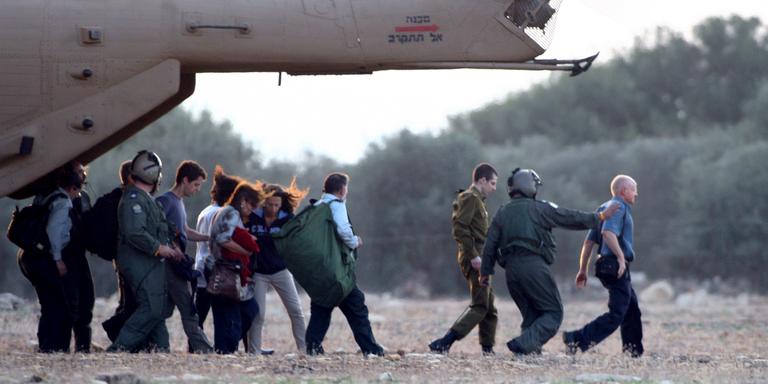


Hostage-taking, one of the most enduring and existential threats to Israel
Long ReadSince the late 1960s, a litany of bombings and hijackings has marked the Jewish state. The repeated hostage-takings have forced the country, with each passing tragedy, to evolve its strategy from rigidity to negotiation.
There is an eternal threat, an existential fear, tucked away in a very dark room in collective memory. In no other country in the world than Israel – created 75 years ago to provide a safe haven for the Jews of the diaspora – is the issue of hostage-taking so central to the responsibility of those in power. "In France, in the United States, in Russia, it's a sovereign mandate to bring back hostages. But when this isn't possible, it doesn't call into question the state itself. In Israel, it does," said Vincent Lemire, a lecturer at Université Gustave-Eiffel in Paris and former director of the French Research Center in Jerusalem.
Whatever the price of a return, hostages must come "home:" This is the implicit contract entrusted to the country's leaders. The safety and integrity of citizens is not a secondary issue but a fundamental requirement. To understand the importance of the hostage issue, all you have to do is look at how they are considered, even if they die in enemy hands," insisted Lemire. "The state is prepared to make very significant concessions to recover the bodies." This willingness includes the need to perform religious rites, but there's more to it than that. It's like an incantation invoked against a fate that keeps repeating itself and is fueled by a vicious cycle of reciprocal vengeance.
"In the history of the Israeli-Palestinian conflict," added Gilles Ferragu, historian and author of Otages, une histoire ("Hostages: A History"), "taking hostages is a long-standing and recurring reality, whoever the adversary is – the Popular Front for the Liberation of Palestine [PFLP], Black September, Hamas, etc..." One of Israel's most famous TV series, Hatufim, literally "abducted" in Hebrew, deals with the return of prisoners of war. Its creator and director, 51-year-old Gideon Raff who lives in both Los Angeles and Israel, confirmed this to Le Monde from Tel Aviv. "The memory of all the hostage-takings is in our DNA, in our genes. When I was a child, these events weren't so long ago; they left their mark on the whole of society. You can't escape that kind of fear." Raff, who is also the co-creator of Homeland, the American version of his series, made no distinction between civilian and military hostages. "Israel is a very small country. Everyone knows a family or a person affected. When something like this happens, it's bound to be close to you, it's personal."
Since the late 1960s, a litany of attacks and hijackings, mostly claimed by the PFLP, has marked Israel. As the tragedies unfolded, these repeated hostage-takings forced Israel's strategy to evolve. Over the last 30 years, Israel has released nearly 7,000 prisoners in exchange for 19 Israelis, most of them soldiers in its national army, the Israeli Defense Forces (IDF). This is a strange equation, where one life is never worth one life.
You have 84.98% of this article left to read. The rest is for subscribers only.
